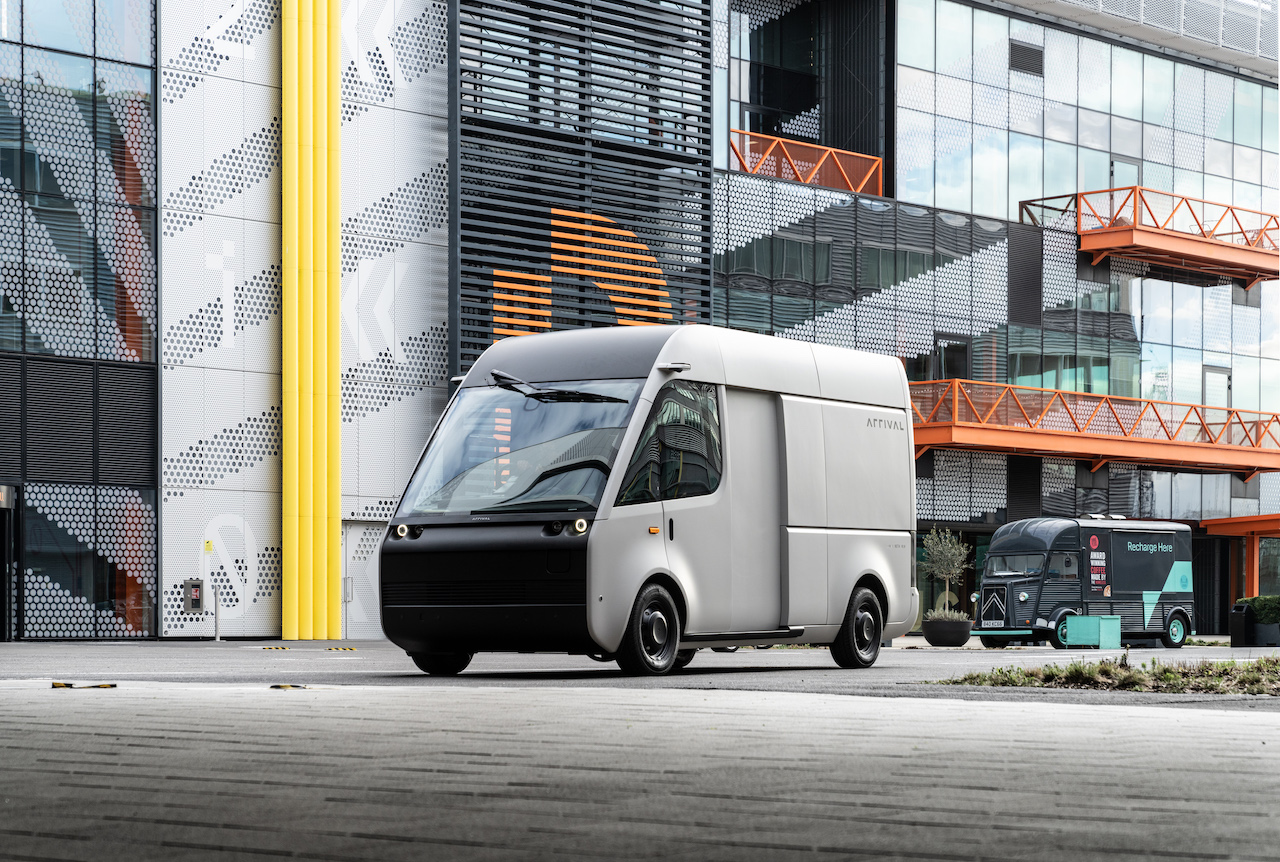Debate worth having: what energy source will power the trucks of the future?

Electric cars have many benefits, but with their lengthy charging times and limited payloads, is hydrogen a better fuel for commercial use? Two experts debate the pros and cons.
How we move is changing forever. The automotive landscape is going through more change in a decade than it has in the century that gave birth to the car.
Driven by stringent emissions targets — the EU has set itself an ambitious objective to become a climate-neutral continent by 2050 — the world is uniting behind a common goal of reducing our reliance on fossil fuels and decreasing greenhouse gases.
Replacing combustion engines is, for the most part, batteries. In 2021, 6.5 million EVs were sold, a staggering 109% increase from 2020, with 85% of sales going to China. For most people, an electric car makes a lot of sense. In the US, the average commute time is 27.6 minutes, and the average person drives 39 miles a day, easily within the range of most electric vehicles on sale.
However, it's in commercial use where the issues arise. With lengthy charge times, limited long-distance ranges and payload capacities, electric might not be the golden solution to all our transportation problems.
After all, hydrogen is still in its infancy. In 2021, only 15,500 hydrogen fuel cell vehicles were sold, and just under 42,000 have entered the market in a decade. There are currently only a handful of hydrogen fuel cell vehicles for sale. And because of this, the infrastructure to refuel them is also limited. For example, in the UK there are only 14 hydrogen filling stations.
But hydrogen vehicles can be refueled in much the same time as a regular combustion vehicle and don't have the same payload disadvantages as electric. So when it comes to commercial use, which is the fuel of the future, electric or hydrogen? Two experts in their respective fields share their views.
I would like to think that we get to a point where people don't have to think about charging their vehicle anymore.
The EV expert: Tom Callow
As an advocate for EVs, Tom has driven 56,000 km in a single year in a BMW i3 electric car.
“The case for the urban electric van is very well made now. What you tend to find is that a lot of the larger, heavier vehicles are not carrying particularly bulky or heavy items. Amazon is a classic example. Most Amazon parcels are not really heavy, they're just boxy. So electrifying those kinds of vehicles makes sense.

For light commercial use, battery technology makes a viable case for itself.
“The average van in London does about 55 miles a day. Clearly, there are a lot of electric vans already on the market that can comfortably do twice or three times that range on a single charge. In my view, it's feasible for 7.5+ ton-sized vehicles to be electrified, if they were doing lower mileage. But it's really about bringing the cost down. It's very hard for fleets to justify doubling the outlay. So cost is the biggest issue.
“When it comes to out of town or longer range, if you've got field-based engineers or van fleets that are doing lots of miles a day, and we're typically talking about 300+ miles for a lot of these drivers, that is quite difficult to substitute an electric van into based on the model range available. If you're doing 300 or 400 miles in a day, that means charging probably twice a day, which cuts into what you're doing with the van. Downtime is the issue.
“I think it is quite challenging to think that the really heavy vehicles could be electrified easily. It's possible that some of the articulated vehicles could be electrified depending on their duty cycle. But if you've got trucks driving hundreds of miles in a day in the UK on diesel, even I as a big EV advocate struggle to see how you can do that on battery technology. Unfortunately, you're adding a heavy drivetrain to a heavy vehicle, and a drivetrain that doesn't really like to carry a heavy load. For heavier vehicles, it does seem inevitable we will have to look at a mixture of energy vectors to power them.

Read more: This is what fleet managers want from EVs
“On some routes, I think you could imagine some sort of electrified pantograph system in place. Overhead wires to charge electric vehicles are going to be a lot easier to install than underground charging systems. But again, a lot of this is down to the vehicle manufacturers. Same as wireless charging. It needs a car manufacturer to come out and say they're going to develop it.
“One interesting development is the idea of electrifying the rear axle. Whether that's a 44-ton trailer or a caravan being towed by an electric car, you can actually get a lot more efficiency if you're also driving the trailer unit.
“I would like to think that we get to a point where people don't have to think about charging their vehicle anymore. The end game is you drive without fear that you won't find the infrastructure to charge it. The idea is that wherever you are, you're within minutes of an ultra-fast charger. I think we'll be in a very good place [in terms of infrastructure] by 2030.
I'm not saying batteries are bad and hydrogen is good. It all depends on the use case.
The hydrogen advocate: Jesse Glickenhaus
SCG builds race cars for the road and has recently developed a hydrogen version of its Baja-winning Boot pick-up truck. Jesse drives a Tesla Model S.
“I don't want anyone to think we're anti battery. I think there are pros and cons to both, depending on the use case. My vision is that the global transportation industry is 100% renewable and 100% zero emissions.
“If you look at California, it's a big state, and after 2030 you won't be able to buy a combustion-engined vehicle. A company we have been talking to based there has a big fleet of pick-up trucks and they're concerned about battery-electric for their application. Their vehicles cover about 350 miles a day, need to be ready 24/7 for an emergency and can't afford to wait while the vehicle is charging. They also need the payload and cargo space, and the charging infrastructure is not yet ready to support a fleet.
“So I always start with the question: what's the problem I'm trying to solve? A battery-electric passenger car makes a lot of sense because of the cost of the batteries, the performance and the range.

Glickenhaus Zero has developed the world's first hydrogen pick-up truck, which could revolutionize fleet use.
Image credit: SCG
“But the reason I came to hydrogen fuel cells for the Baja is that in this event we're energy limited. The energy density of the best batteries on the market is much less than the energy density of hydrogen. When you are energy limited, whether that's in a race like the Baja or long-distance trucking, you need a lot more batteries to match the same energy as hydrogen. In a race, we start with 60kgs of hydrogen fuel, but that gets less as the race goes on, whereas, with batteries, we would be carrying that weight throughout. If you're a long-haul truck carrying around 100 gallons of diesel, you would need 2000kgs of batteries to give you the same energy.
“If you operate trucks in a port, and their only job is to move shipping containers from a port five miles away to a warehouse, then the trucks park for eight hours, batteries are a very good solution because your use case is very different and you're not energy limited. Same for a garbage truck, for instance. But if you're a long-distance truck, a ship or an airplane, you've got to use hydrogen. These are use cases where you are energy limited. It's not necessarily distance, but where you can't easily access energy.
“As for the limited hydrogen infrastructure, I think of it like this: the first automobiles were built before the first gas station. And the first electric cars were built before the first electric charging stations. A hydrogen fuel cell vehicle can be a one-to-one replacement with an internal combustion engine vehicle in the sense of the refueling could take the same amount of time. So you need a lot less refueling infrastructure. If you have a range of 350 miles, and you can go back to your depot and refuel at night, that works for fleets. As for “class A" long-haul trucks, which might cover 1,000 miles in a journey, you could have four or five hydrogen refueling stations across the major highway network that could service the majority of truck traffic.
“With electric, you need one charger per truck, which could take hours to replenish the batteries. With cryogenic hydrogen, if you have five or 10 depots, you need five or 10 tanks and it takes you five minutes to fill the tank. Earthmover trucks, airplanes, class A trucks and tug boats, for instance, are going to be cryogenic. But where cryogenic has a disadvantage is if you don't use it 24/7 consistently, the fuel evaporates. So for passenger cars, I don't think they will be cryogenic. I'm not saying batteries are bad and hydrogen is good. It all depends on the use case."
What do you think?
As our experts have concluded, it's really the use case that will determine which fuel suits which application. For most of us, electric vehicles work, certainly for personal use and light urban commercial. But for long-haul transportation where energy availability is limited, hydrogen could be the answer to meet our future clean transportation goals.
Have your say
Sign up for our newsletter
Why sign up:
- Latest offers and discounts
- Tailored content delivered weekly
- Exclusive events
- One click to unsubscribe


